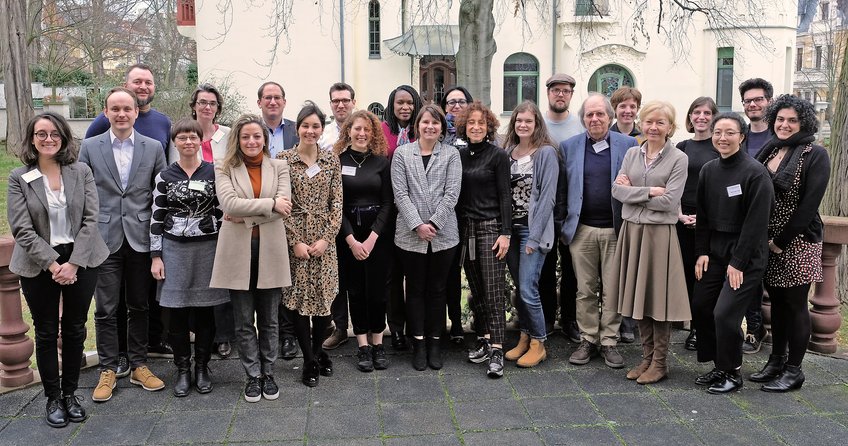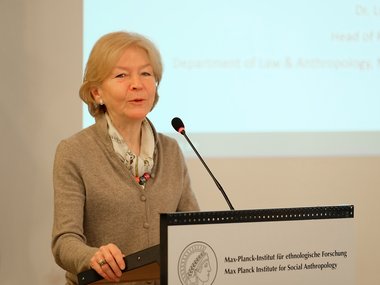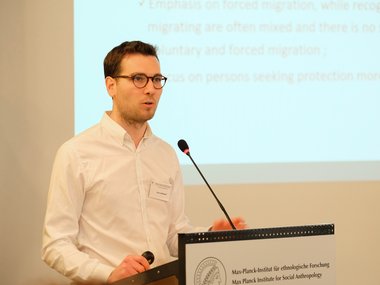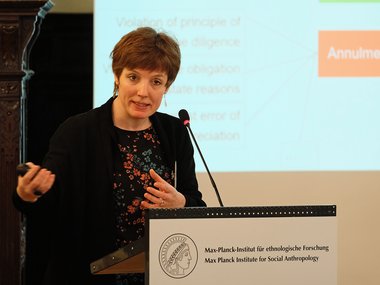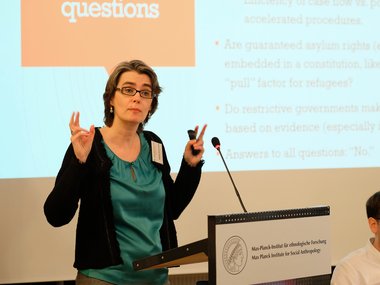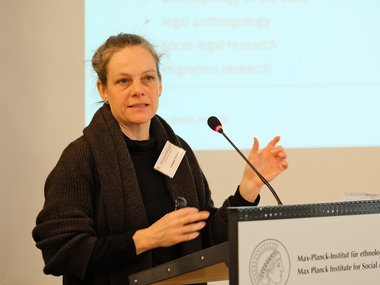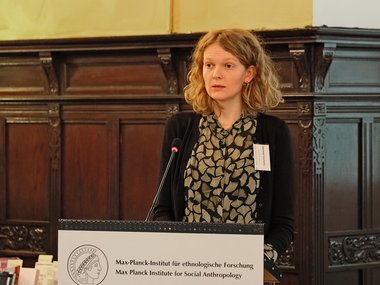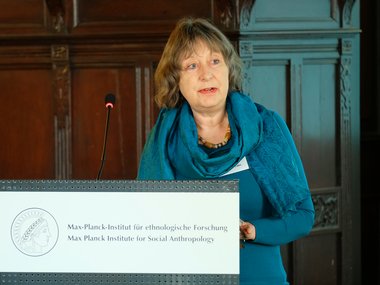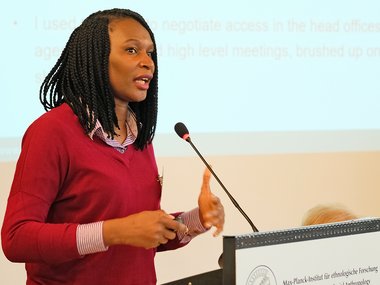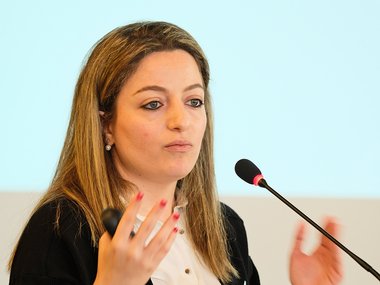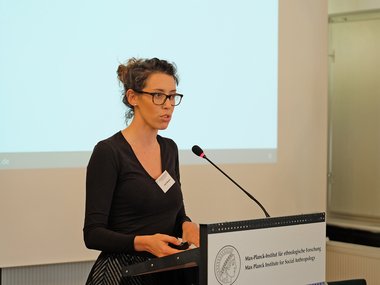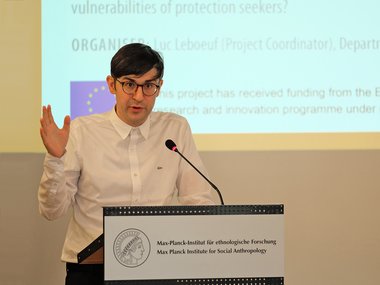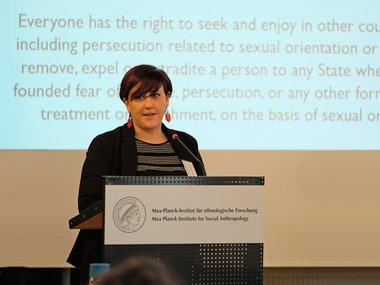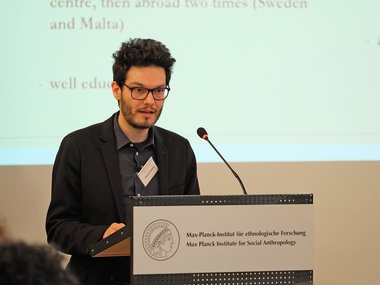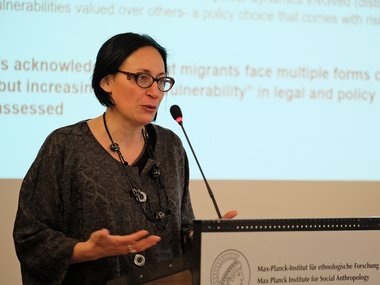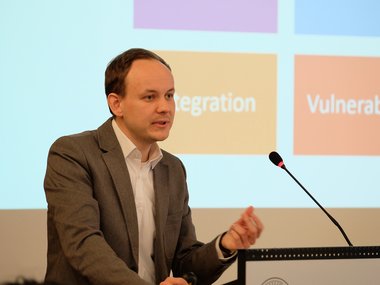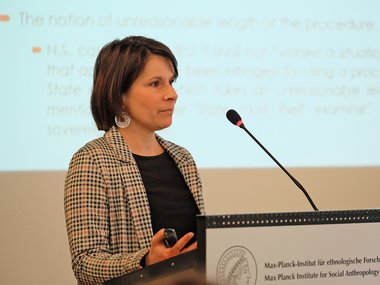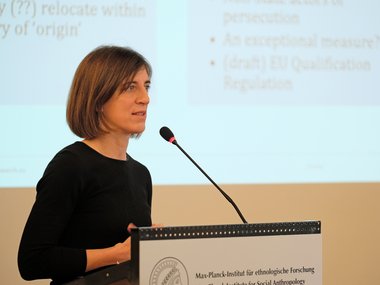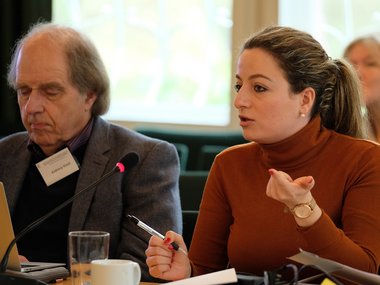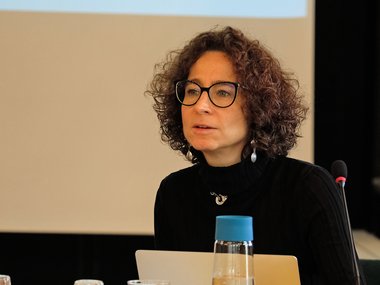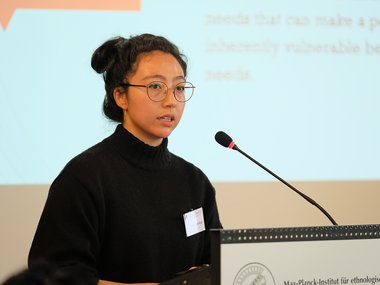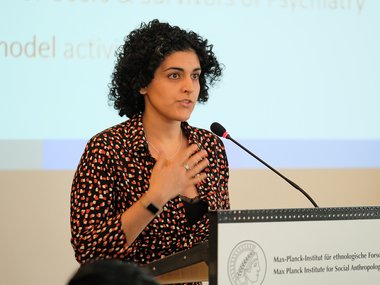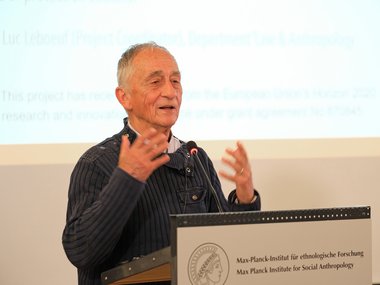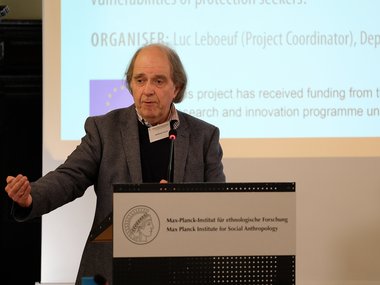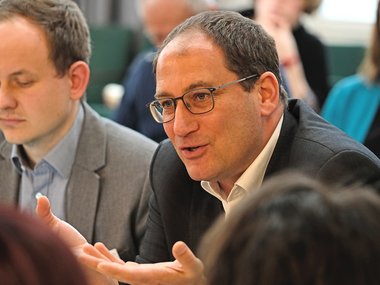VULNER kick-off workshop
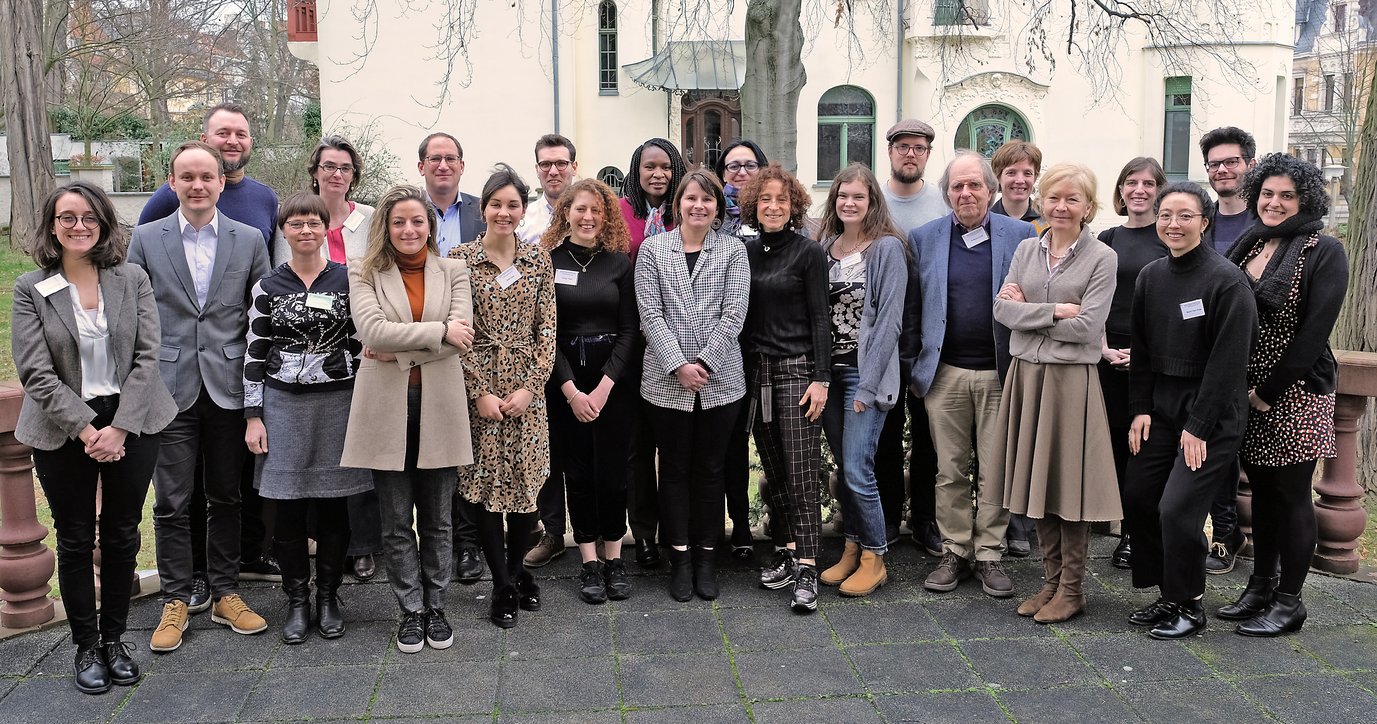
After an introductory talk by Marie-Claire Foblets (Max Planck Institute for Social Anthropology), VULNER Scientific Coordinator Luc Leboeuf presented the theoretical and methodological framework established for the research project. This served as a starting point for the discussions during the workshop, in which speakers shared their practical and theoretical knowledge acquired during previous research.
Sharing Research Experiences
The first panel, chaired by Delphine Nakache (University of Ottawa), addressed empirical research methods and scholarship that make it possible to document and analyse the implementation of migration and asylum law from an empirical perspective.
The panel included presentations from Ellen Desmet (University of Ghent), Dagmar Soennecken (York University), and Larissa Vetters (Max Planck Institute for Social Anthropology). Speakers shared empirical perspectives on the implementation of migration law by administrative and asylum courts in Belgium and Germany, drawing on quantitative analyses of the case law and interviews with judges, lawyers, migrants, and other relevant stakeholders, as well as court observations.
Catharina Ziebritzki (Max Planck Institute for Comparative Public Law and International Law) then showed how legal scholarship on migration law is influenced by the knowledge acquired through legal practice. She argued that, whilst practical experiences lack the systematicity of empirical research methods, they may still serve as a basis for a fruitful dialogue between legal scholars and other social scientists.
The second panel, chaired by Marie-Claire Foblets, addressed the challenges that are inherent in conducting ethnographic fieldwork among vulnerable migrants, including access to data, positionality, and ethical issues.
Hilde Lidén (Institute for Social Research, Oslo) shared her experience in dealing with the ethical conundrums inherent in conducting fieldwork among unaccompanied minors in Norway.
Sophie Nakueira (Max Planck Institute for Social Anthropology) reflected on how her positionality as a Ugandan female scholar affiliated with a Western research institution affected her interactions with the participants in the research that she conducted in the Nakivale refugee camp in Uganda.
Chaden Daif (Centre for Lebanese Studies) adopted a different perspective and shed light on the underlying power dynamics that guide research collaborations between the Global North and the Global South. She argued in favour of equitable research practices that do not rely on researchers from the South merely to collect data but also include them within the data analysis process.
Dissecting the Concept of 'Vulnerability' from a Theoretical, Legal and Empirical Perspective
A panel chaired by Zeynep Yanasmayan (Max Planck Institute for Social Anthropology) examined the concept of “vulnerability” in connection with gender theories, where its theoretical roots can be found.
Alice Margaria and Stefano Osella (both from the Max Planck Institute for Social Anthropology) clarified how the term is conceptualized in feminist and queer theories respectively, showing how “vulnerability” is not exclusively focused on individual characteristics but may also serve to draw attention to broader power dynamics.
Denise Venturi (Catholic University of Leuven) and Dany Carnassale (Ca’Foscari University of Venice) then presented the main findings of their respective research on sexual orientation and gender identity (SOGI) asylum claims, which Venturi conducted from a legal perspective and Carnassale based on empirical studies focused on Italy. Both showed how the concept of “vulnerability” guided the development of the legal framework for the adjudication of such claims, and how the concept allows for a better understanding of the concrete experiences of those seeking asylum on the grounds of SOGI-related persecution.
The next panel, chaired by Mariana Monteiro de Matos (Max Planck Institute for Social Anthropology), analysed how the “vulnerabilities” of asylum seekers are defined and addressed in different bodies of law.
Delphine Nakache, Tim Rohmann (Max Planck Institute for Social Law and Social Policy), and Joanna Pétin (former Associate Judge at the French Asylum Court) analysed how vulnerabilities have been used and defined in the UN Global Compacts, the case law of the European Court of Human Rights, and the Common European Asylum System respectively.
Jessica Schultz (University of Bergen) then focused on the legal criteria identifying internal protection alternatives for refugees, analysing how they address some vulnerabilities but may simultaneously also produce further vulnerabilities.
The final panel, chaired by Sylvie Sarolea (Catholic University of Louvain), discussed how intersecting social and legal factors contribute to asylum seekers’ experiences of the many vulnerabilities that they face.
Francesca Raimondo (Catholic University of Louvain) addressed the specific challenges faced by stateless persons, and Midori Tijen Kaga (University of Ottawa) argued in favour of humanitarian policies that address the vulnerabilities of the elderly in a way that increases their “capabilities” (as defined in the scholarship of Amartya Sen).
Lastly, Nicolette Busuttil (Queen Mary University of London) made the case for applying the human-rights model of disability to migrants with mental health needs. She argued in favour of removing barriers that impair access to healthcare instead of following a practice that limits healthcare protection to only the most vulnerable, in what may create a perverse incentive to be “rendered vulnerable”.
Keynote on Fieldwork Policy and Positionality Issues
As part of the workshop, Jean-Pierre Olivier de Sardan (École des Hautes Études en Sciences Sociales) delivered a keynote entitled 'Fieldwork Policy and Positionality Issues'. After discussing the various modes of data production and research strategies in anthropology, he argued in favour of 'methodological populism', which he defined as a people-centered methodological approach that seeks to document and analyze the agency and rationalities of all actors involved, including the most vulnerable ones. 'Methodological populism', Jean-Pierre argued, should not be confused with 'ideological populism' that results from strict adherence to the values and interests of the group under study and which is likely to produce biased research results.
The keynote was followed by comments from Anthony Good (University of Edinburgh), who highlighted the 'craftmanship nature' of data production in anthropology, insisting on the need for researchers to constantly adapt to the field while showing respect in cases when the opinions of the actors encountered diverge from one’s own. These comments were thereby suggestive of the need for the conversation on research methods to be continued throughout the implementation of the VULNER project.
